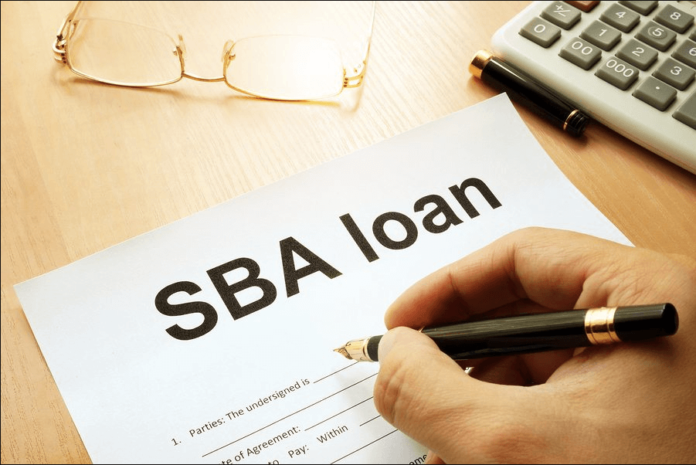They provide access to capital that can be used for various purposes, such as starting a new business, expanding an existing one, or covering operational expenses. However, once you secure an SBA loan, it’s crucial to understand the process of making timely loan payments to maintain a healthy financial relationship with the lender. In this article, we will explore the key aspects of SBA loan payments and provide essential information to help you manage your loan effectively.
Understanding SBA Loan payment
SBA loan payment are loans provided by banks and financial institutions but guaranteed by the Small Business Administration (SBA). This guarantee reduces the risk for lenders, enabling them to offer loans to small businesses that may not qualify for traditional financing. SBA loans typically have favorable terms, including low-interest rates and longer repayment periods, making them an attractive option for entrepreneurs.
Importance of Timely Loan Payments
Making timely loan payments is crucial for several reasons. Firstly, it helps maintain a positive relationship with your lender, which can be beneficial for future financing needs. Timely payments also contribute to building a strong credit history, which can improve your credit score and open doors to better financing opportunities in the future. Additionally, consistent payments demonstrate your commitment to honoring your financial obligations and can positively impact your business’s reputation.
How to Make SBA Loan Payments
SBA loan payments can be made through various methods. The most common options include:
- Automatic Payments: Set up automatic withdrawals from your business bank account to ensure timely payments without the need for manual intervention.
- Online Payments: Use your lender’s online portal to make payments electronically. This method provides convenience and allows you to track your payment history.
- Manual Payments: Make payments by check or money order. Ensure that you include all necessary details, such as your loan number, to ensure accurate processing.
- Electronic Funds Transfer (EFT): Coordinate with your bank to initiate electronic funds transfers directly to your lender.
Options for Payment Assistance
In certain circumstances, businesses may face financial difficulties and struggle to make their loan payments. If you find yourself in this situation, it’s essential to be proactive and explore available options. Some potential solutions include:
- Loan Modification: Discuss with your lender the possibility of modifying the loan terms to reduce monthly payments or extend the repayment period.
- Payment Deferral: Request a temporary deferral of payments, allowing you to allocate funds towards other critical business needs during challenging times.
- Forbearance Agreement: Enter into a forbearance agreement with your lender, which provides temporary relief by temporarily suspending or reducing payments.
- Debt Restructuring: Work with a financial advisor or consultant to explore options for restructuring your debt, potentially consolidating multiple loans into a single payment.
Managing SBA Loan Repayment
To effectively manage your SBA loan repayment, consider the following tips:
- Create a Budget: Develop a comprehensive budget that includes your loan payment obligations. This will help you allocate funds appropriately and avoid financial strain.
- Prioritize Payments: Make your loan payments a top priority to ensure they are not overlooked or delayed.
- Stay Organized: Keep all loan-related documents, such as payment receipts and correspondence, in a well-organized manner for easy reference.
- Monitor Cash Flow: Regularly monitor your business’s cash flow to ensure sufficient funds are available for loan payments.
- Seek Professional Advice: If you encounter challenges or need guidance, consult with a financial advisor or accountant who specializes in small business finances.
Tips for Successful Loan Payment
Here are some additional tips to ensure successful loan payments:
- Be Proactive: Stay ahead of your payment schedule and plan accordingly to avoid last-minute financial stress.
- Communicate with Your Lender: If you anticipate difficulties in making a payment, notify your lender in advance and discuss potential solutions.
- Keep Accurate Records: Maintain accurate records of all loan-related documents, including payment receipts and statements.
- Explore Forgiveness Programs: Familiarize yourself with any potential loan forgiveness programs offered by the SBA or other applicable institutions.
- Stay Informed: Stay updated with the latest regulations, programs, and resources related to SBA loans to make informed decisions.
Common Questions about SBA Loan Payment
- Can I pay off my SBA loan early?
- Yes, most SBA loans do not have prepayment penalties, allowing you to pay off your loan before the designated term ends.
- What happens if I miss an loan payment?
- Missing a loan payment can have consequences, such as late fees, damage to your credit score, and potential legal actions from the lender.
- Can I change my loan payment due date?
- It may be possible to change your loan payment due date by discussing the matter with your lender. However, the availability of this option may vary depending on your lender’s policies. Read more…
Conclusion
Managing SBA loan payment is crucial for maintaining a healthy financial relationship with your lender and building a strong credit history. By understanding the importance of timely payments, exploring available payment assistance options, and implementing effective loan repayment strategies, you can successfully navigate the process of paying off your SBA loan. Stay proactive, seek professional advice when needed, and prioritize your loan payments to ensure the long-term financial health of your business.
FAQs
Q1. Can I pay off my SBA loan early?
Yes, most SBA loans do not have prepayment penalties, allowing you to pay off your loan before the designated term ends.
Q2. What happens if I miss an SBA payment?
Missing a loan payment can have consequences, such as late fees, damage to your credit score, and potential legal actions from the lender.
Q3. Can I change my SBA payment due date?
It may be possible to change your loan payment due date by discussing the matter with your lender. However, the availability of this option may vary depending on your lender’s policies.

